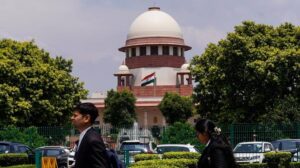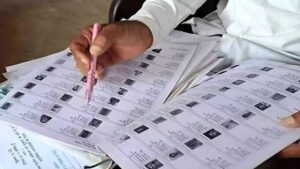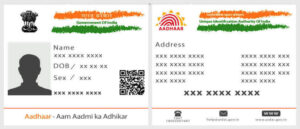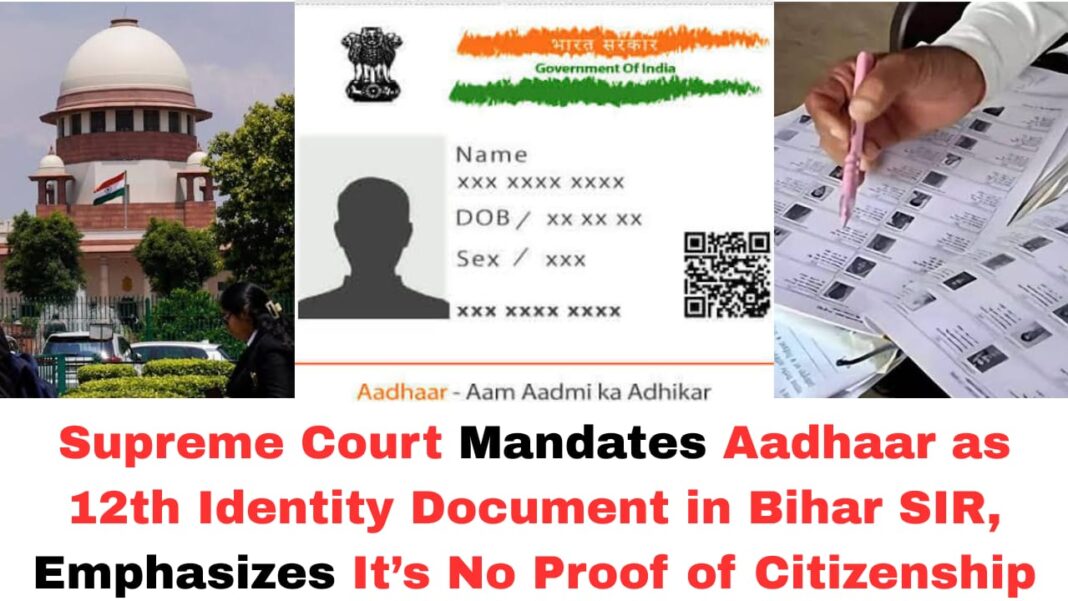Digital News Guru Bihar Desk:
Supreme Court Allows Aadhaar as Valid ID for Bihar Voter List Revision
The Supreme Court of India has delivered a significant ruling in relation to the ongoing Special Intensive Revision (SIR) of electoral rolls in poll-bound Bihar. The apex court has ruled that Aadhaar must be accepted as the 12th valid identity document, while unequivocally clarifying that it does not constitute proof of citizenship.
The Directive in Detail
A bench comprising Justices Surya Kant and Joymalya Bagchi, hearing petitions tied to the SIR process, ordered that Aadhaar cards be accepted alongside the eleven other documents previously permitted by the Election Commission of India (ECI) for identity verification.

The court emphasized that while Aadhaar can be used to verify identity, it cannot and will not be used as proof of Indian citizenship. The ECI must, however, ensure that the authenticity and genuineness of Aadhaar cards are confirmed when submitted for electoral roll inclusion.
Moreover, the Court directed the ECI to issue formal instructions to its election officers, ensuring consistent implementation of this directive at ground level during the revision exercise.
Why Now? Background of the SIR Process
The Special Intensive Revision of Bihar’s voter rolls was launched amid concerns over outdated or inaccurate records. The ECI’s June 24, 2025 notification required voters to submit updated documentation within a tight deadline—originally granting one month, with July 25 widely communicated as the cutoff.
However, many citizens lacked the now-required eleven identification documents. This led to widespread disenfranchisement fears, prompting multiple petitions before the Supreme Court. During hearings in July and August, the Court directed the ECI to accept Aadhaar, EPIC (voter ID), and ration cards—especially for those excluded or unable to access the mandated documents.
On August 14, the Court mandated the ECI to publish, both online and at Booth Level Officer (BLO) offices, the list of 65 lakh electors removed from the draft roll, permitting Aadhaar or EPIC as proof for inclusion objections.
The present ruling on September 8 extends that relief to all voters, not just those who were excluded earlier. A prior resistance from some election officials—who refused Ull to accept Aadhaar despite earlier orders—necessitated this clarification.

Legal and Practical Implications
- Increased Inclusivity: Aadhaar is a widely held identification tool in India, especially in rural and migrant populations. Its formal inclusion is expected to help legitimize and include eligible voters who might otherwise struggle to produce documentation.
- Citizenship Integrity Preserved: By clarifying Aadhaar is not proof of citizenship, the Court ensures that only valid Indian citizens are eligible to vote. This maintains legal integrity while expanding identity verification options.
- Ground-Level Clarity and Compliance: Judicial attention to show-cause notices issued to BLOs underscores the importance of clear, enforceable directions. The Supreme Court’s mandated formal notice and instruction are designed to eliminate confusion and non-compliance.
- Timeline for Final Roll: With the final electoral roll scheduled for September 30, the timing of the ruling is crucial. Voters now have a clear path to correct inclusion via Aadhaar before the election phase begins.
Voices from the Courtroom
Senior Advocate Kapil Sibal, arguing for RJD and petitioners, highlighted that Booth Level Officers were ignoring previous Supreme Court directives. Supporters of Aadhaar inclusion pointed out it’s a universal, accessible document—especially for poorer citizens—making exclusionary practices deeply problematic.

On behalf of the ECI, Senior Advocate Rakesh Dwivedi countered that the commission retains authority to determine citizenship issues and held that despite advertising permissible documents, Aadhaar should not be conflated with citizenship proof.
The Justices underscored that election forms already reference Aadhaar under the Representation of People Act, 1951 (RP Act), acknowledging its legal role as identity—but not citizenship—evidence.
Conclusion: A Balanced Leap Forward
The Supreme Court’s September 8 directive strikes a deliberate balance: enhancing electoral inclusivity in Bihar by leveraging the ubiquity of Aadhaar, while preserving electoral integrity through stringent citizenship safeguards. For those previously excluded from the voter list, this reaffirmation offers a renewed opportunity to assert their franchise with a document nearly universally available.
This judicial intervention underscores a broader principle: legal flexibility must not erode foundational requirements—in this case, citizenship—but can reinforce fair access to democratic participation.
You May Also Read: BJP’s Two-Day MPs Workshop Prepares for September 9 Vice-Presidential Polls








